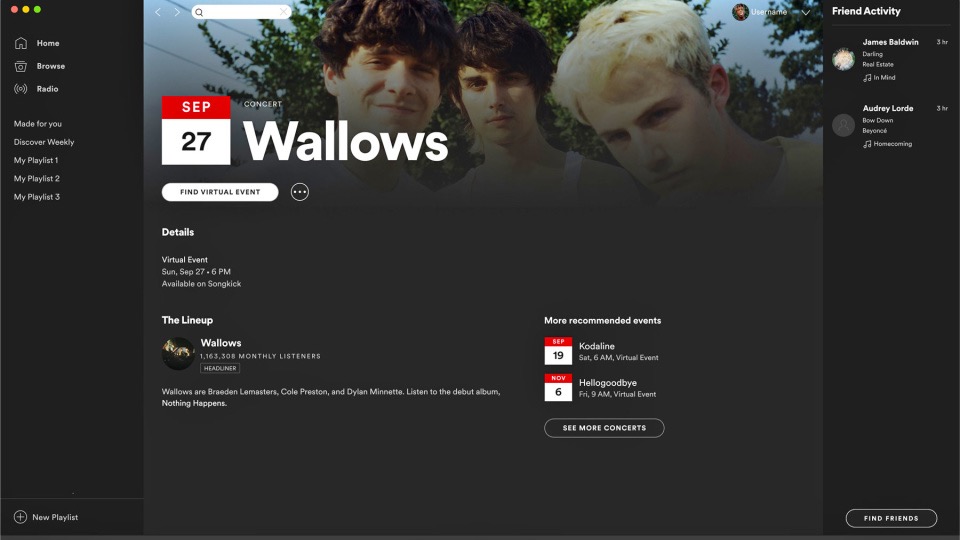Spotify fears raising its monthly subscription above £9.99 ($9.99) could “push users into piracy”, it told MPs at a parliamentary select committee inquiry on Tuesday, despite suggestions from record labels that an increase could help struggling musicians.
The chief legal officer for the popular music streaming service, Horacio Gutierrez, claimed that any rise in the current fee, which hasn’t changed in a decade, would make music “unaffordable to consumers”, the BBC reports.
Gutierrez was giving evidence to the ‘Digital, Culture, Media and Sport’ committee inquiry into the economic impact music streaming is having on artists, record labels and the wider music industry’s sustainability.
The inquiry was established at the tail end of 2020, a year in which artists all but lost any direct income from live shows due to the pandemic but, according to the BPI, also saw UK music streams grow by 20 per cent. MPs are investigating the business models of platforms such as Spotify, Apple Music, Amazon Music and Google Play and have heard compelling testimonies from record executives and artists, including Radiohead, Elbow and Chic’s Nile Rodgers.
Music streaming provides the UK economy with more than £1 billion in revenue, however artists can be paid as little as 13 per cent of the income generated.
Alongside Gutierrez, Tuesday’s session heard testimony from Paul Firth, director of International Music at Amazon, and Elena Segal, global senior director of Music Publishing at Apple. The three representatives agreed that they would investigate alternative royalty models, including shifting to the user-centric system currently being explored by Soundcloud and Deezer, where your entire subscription fee goes directly to the artists that you listen to the most.
Gutierrez said: “We would definitely be open to looking for alternative models and considering them.” Amazon Music’s Firth concurred, saying: “We should take a look at a number of these approaches” to see whether they really benefit the artist.
Segal added that any new approach would need to be agreed upon by everyone who supplies music to the streaming services before implementing it.
Discord between the main subscription services and rival YouTube was also a key topic of conversation, with Apple Music’s Segal saying that the mere fact of YouTube’s existence prevented other streaming services from raising their prices.
“Competing with free is very difficult. It’s challenging to compete on an un-level playing field,” she said. “They don’t necessarily have licenses for all the music that they use, and they don’t need to,” she continued, referring to the ‘safe harbour’ laws that protect YouTube from legal claims when users upload copyrighted material.
Segal also highlighted the disparity between the amounts paid to artists by YouTube.
According to data from The Trichordist, YouTube pays the least of any online platform to artists: around 0.05p per stream. That compares to 0.6p from Apple and between 0.2 and 0.4p for Spotify.
Segal explained that music streaming services could not effectively compete in the same way that video platforms such as Netflix and Disney Plus do because, aside from podcasts, they do not have original content to incentivise consumers.
“Those things do make it challenging to just put prices up in a vacuum… because people can just opt to go to free or to another service that will have the same music,” she said.
In a previous hearing, YouTube defended its practises, claiming it has the potential to become the music industry’s number one source of revenue by 2025. It warned that any ruling forcing them to pay more for music streamed on their platform could backfire and have a “potentially devastating” effect on artists and songwriters’ income. This threat was challenged by BPI CEO Geoff Taylor, who said its projection “does not reflect” his experiences.
Both Amazon and Spotify offer free, ad-supported services that they admitted they would maintain even if greater restrictions are placed on YouTube.
MORE:
Big news! Spotify HiFi tier (finally) launching to offer CD-quality streaming
These are the best music streaming services
Compare Spotify vs Tidal: which is better?
